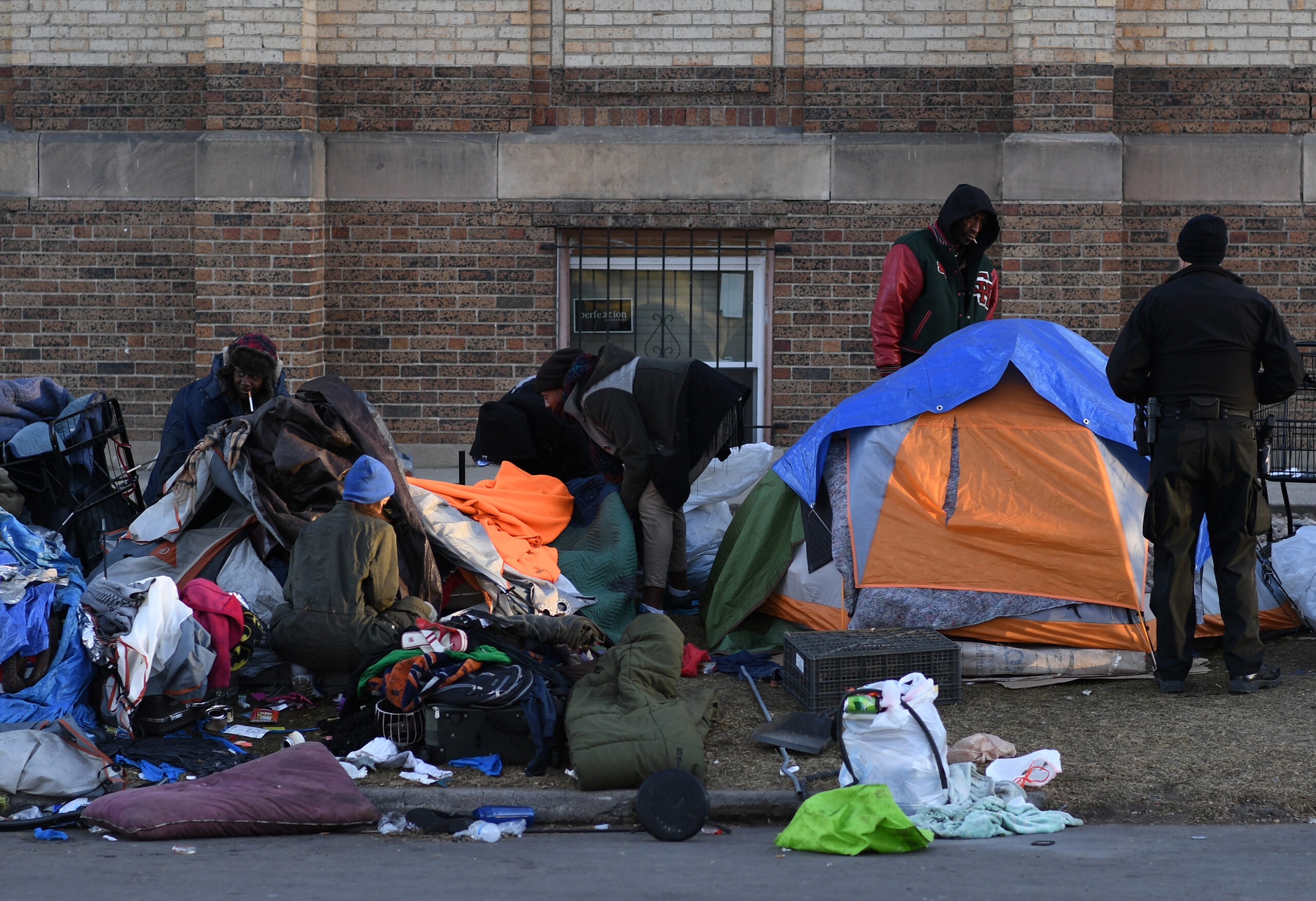
The Denver metro area saw a significant increase in the number of unsheltered homeless people last year, according to a recent report.
The Metro Denver Homeless Initiative’s (MDHI) report found that more than 12,000 individuals experienced unsheltered homelessness last year, meaning they slept outside rather than in a shelter. That number is up from just over 1,500 unsheltered people during the last full point in time (PIT) count in 2020.
The 2022 PIT count was not conducted in the same fashion as previous years because of COVID-19. Last year, MDHI compiled data from the Homeless Management Information System, a database organized by the federal Department of Housing and Urban Development, and school district data.
In a typical year, the PIT count is conducted by volunteers during one night in January. Volunteers canvas specified areas of the city and interview people experiencing homelessness to collect their data. The results are then compiled and reported by local continuums of care, organizations that work with federal agencies to execute strategies to reduce homelessness.
Jamie Rife, MDHI’s communications director and its incoming executive director, said that the data also shows racial inequalities among the people experiencing homelessness in Denver.
Overall, the region saw a 40% increase in people using emergency shelter services and a 99% increase in the number of newly homeless.
However, the number of Black people experiencing homelessness is nearly five-times greater than their share of the general population. Approximately a quarter of the people experiencing homelessness in Denver are Black even though they make up 5.3% of the entire population. For comparison, white people make up 59% of Denver’s homeless population and nearly 82% of the metro area’s general population.
One area of success for the region, according to Rife, is that Denver has reduced its share of veterans experiencing homelessness by 15% on an annualized basis. Rife pointed to increased coordination among state agencies as the reason for this success.
“This is proof of the strides we can make when we work together and have more housing and services available for those experiencing homelessness,” Rife said in a statement.
Denver plans to become the latest city to join the Built For Zero movement by 2026, according to the city’s five-year housing plan. This designation is handed out by the nonprofit organization Community Solutions to cities that achieve “functionally zero” homelessness.
According to the organization, “functional zero” for homelessness is when “less than three – or .1% of the total number of individuals reported in the most recent point-in-time count, whichever is greater – are experiencing chronic homelessness at any given time.”
A recent study of Denver’s homeless service ecosystem by the Common Sense Institute, a free-enterprise think tank, found that Denver has more than 85 service organizations directed towards reducing homelessness.
Another study by the organization found that the city spends more than half a billion dollars on services for people experiencing homelessness.
This article was originally posted on Denver saw significant increase in unsheltered homelessness in 2021